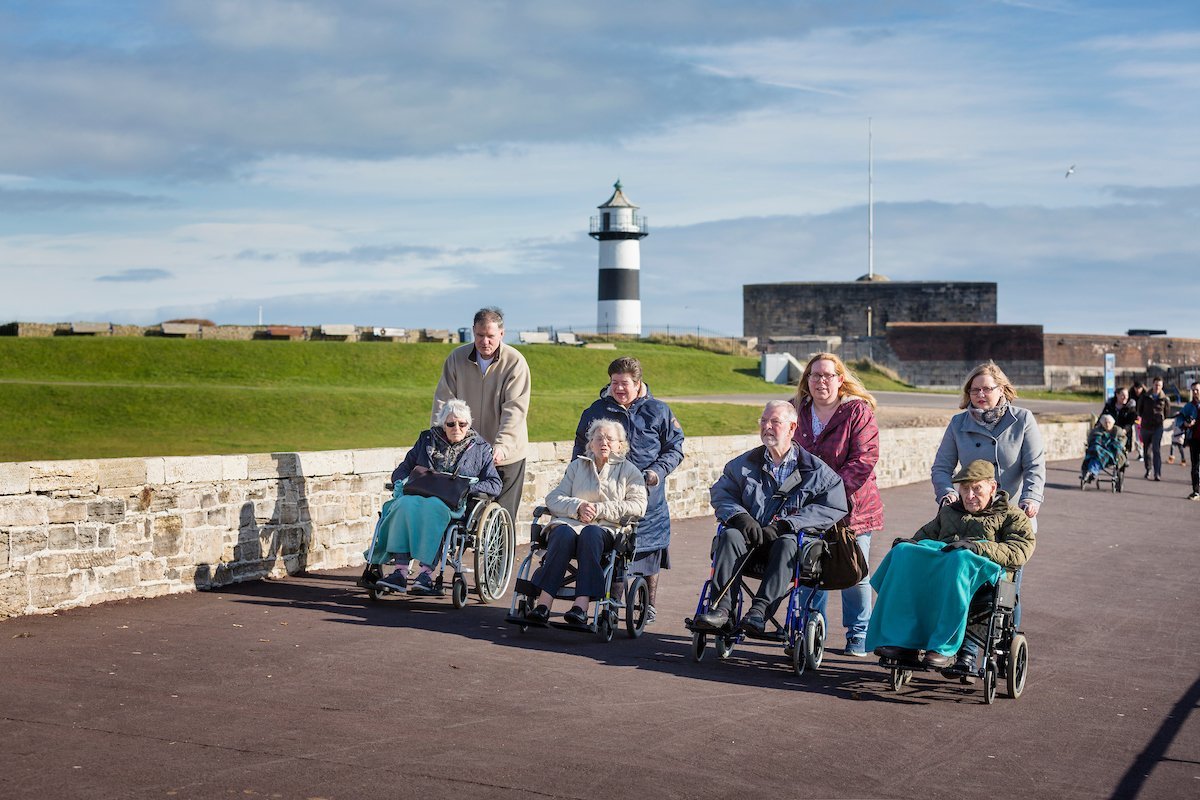Benefits of Outdoor Activities for People with Dementia and Alzheimer's
Since January, 1,021 residents with dementia have taken part in a tour with Myley.
49.2% of residents who take part in a tour with Myley are living with dementia.
September is World Alzheimer's Month, a global movement that plays a key role in educating people about the signs and symptoms of Alzheimer’s, the most common type of dementia. This month-long initiative is crucial in breaking down the stigma surrounding dementia and fostering a deeper understanding of how it affects individuals and their families.
At Myley, we are proud to acknowledge World Alzheimer's Month by highlighting the profound benefits of outdoor activities, such as those we facilitate on our tours, for those living with Alzheimer's and other forms of dementia. Research shows that spending time outdoors can improve cognitive function, mood, and overall well-being for individuals with dementia, offering them moments of joy and connection with nature.
'Nature is intrinsic to our physical, emotional and mental wellbeing. It has a unique ability to calm our stress levels, increase our creativity, empathy and our sense of wonder and improve our social interactions and communication. Even small connections with nature can help reduce feelings of loneliness, isolation and anxiety, and bring significant health benefits.' (source)
Our tours accommodate people with dementia, making them accessible and enjoyable. Our Tour Leaders have undergone dementia specific training, ensuring that they understand the unique challenges faced by individuals living with the disease. Each tour is designed to be sensitive and mindful of their needs.
Below, we explore why regular outings can make a significant difference:
1. Improved cognitive function
Fresh air and new experiences stimulate the brain, keeping it active and engaged. Nature's calming effect and sensory stimulation can help slow cognitive decline in people living with dementia.
2. Physical health benefits
Outdoor activities like walking improve circulation, strength, and balance, reducing the risk of falls for those with dementia.
3. Mood enhancement
Time spent in nature reduces stress and anxiety, offering a calming environment that enhances overall mood and well-being.
4. Social interaction
Outings encourage social engagement, combating isolation and promoting a sense of connection for those living with dementia and their carers.
5. Routine and structure
Regular outings add structure and predictability to daily life, providing comfort and security.
6. Sensory stimulation
Nature offers sensory experiences—sights, sounds, and smells—that spark memories and bring joy to those with dementia.
7. Caregiver benefits
Caregivers also benefit from the change of scenery and shared experiences, reducing stress and strengthening their bond with the person in their care.
Tips for Planning Outings
- Keep it simple: Short, local trips are often the best option. Even a 15-minute walk can make a difference.
- Choose dementia-friendly locations: Some places offer specific activities or quieter times for people with dementia.
- Be mindful of comfort: Bring along anything that might be needed, like a jacket, water, or medications, and be sure not to overstimulate with too many activities.
- Familiarity can be comforting: Visiting places that the person knows well, such as a favourite park or café, can reduce anxiety.
Myley provides a unique opportunity for individuals and their caregivers to engage with the world outside in a way that’s enriching and socially inclusive. By doing so, we aim to make outdoor experiences not just accessible, but truly beneficial for those living with dementia.
Get in touch to find out more about our dementia training and how a Myley tour can change the lives of those you know.









